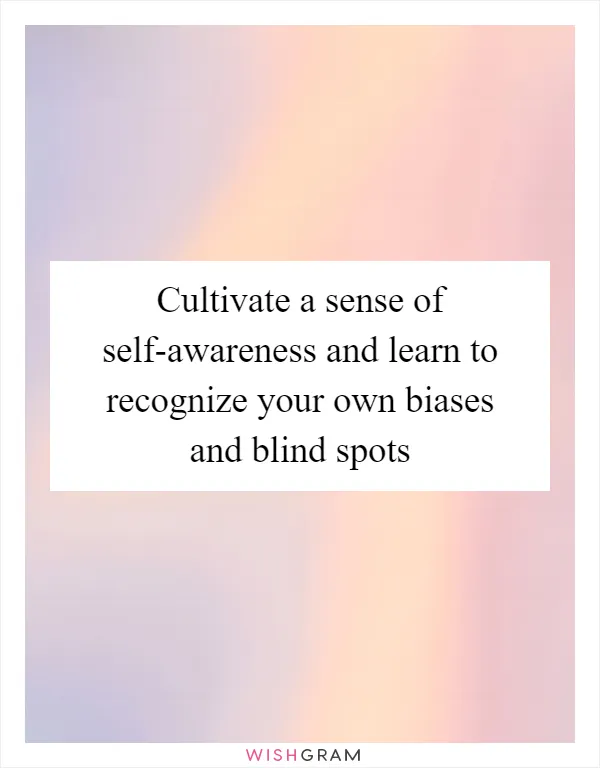Cultivate a sense of self-awareness and learn to recognize your own biases and blind spots
Cultivating a sense of self-awareness is an essential aspect of personal growth and development. It involves taking the time to reflect on our thoughts, emotions, and actions, and understanding how they shape our perceptions and interactions with the world around us. By becoming more self-aware, we can gain a deeper understanding of ourselves and others, and learn to recognize our own biases and blind spots.
Biases are inherent in all of us. They are the unconscious preferences or prejudices that influence our judgments and decisions. These biases can be based on various factors such as our upbringing, cultural background, personal experiences, or even the media we consume. It's important to acknowledge that biases are not inherently negative, but they can hinder our ability to see things objectively.
Recognizing our biases requires a willingness to examine our thoughts and beliefs with an open mind. It means questioning our assumptions and challenging the narratives we have internalized. This process can be uncomfortable at times, as it may reveal aspects of ourselves that we may not be proud of or that contradict our self-perception. However, it is through this introspection that we can begin to dismantle our biases and expand our perspectives.
Blind spots, on the other hand, are areas in our understanding or knowledge where we lack awareness. They are the things we don't know that we don't know. Blind spots can prevent us from fully understanding a situation or considering alternative viewpoints. By acknowledging and addressing our blind spots, we can become more open-minded and receptive to new ideas and perspectives.
Developing self-awareness and recognizing biases and blind spots is an ongoing process. It requires a commitment to continuous learning and growth. Here are a few strategies that can help in this journey:
1. Practice mindfulness: Take time to observe your thoughts, emotions, and reactions without judgment. Mindfulness allows you to become more aware of your biases and how they influence your perceptions.
2. Seek feedback: Ask for feedback from trusted friends, colleagues, or mentors. They can provide valuable insights and help you identify blind spots that you may not be aware of.
3. Educate yourself: Read books, articles, or listen to podcasts that challenge your existing beliefs and expose you to different perspectives. Engage in conversations with people who have different backgrounds and experiences.
4. Reflect on your experiences: Regularly reflect on your interactions and experiences to identify any biases or blind spots that may have influenced your behavior or decisions. Consider how you could have approached the situation differently.
5. Be
